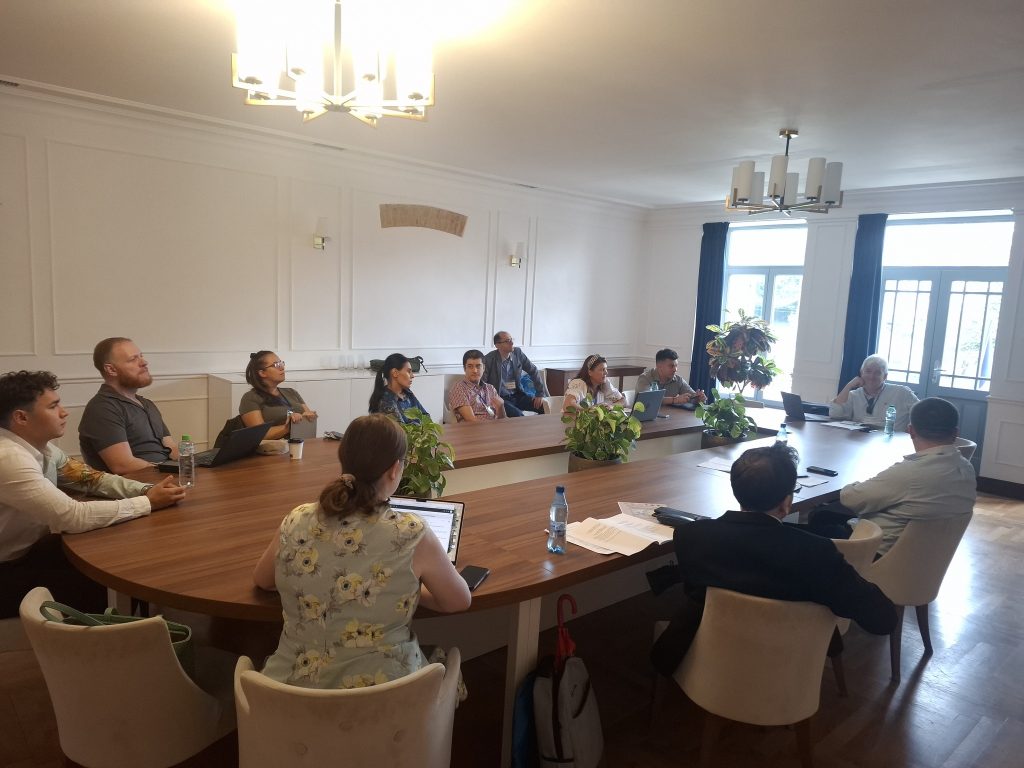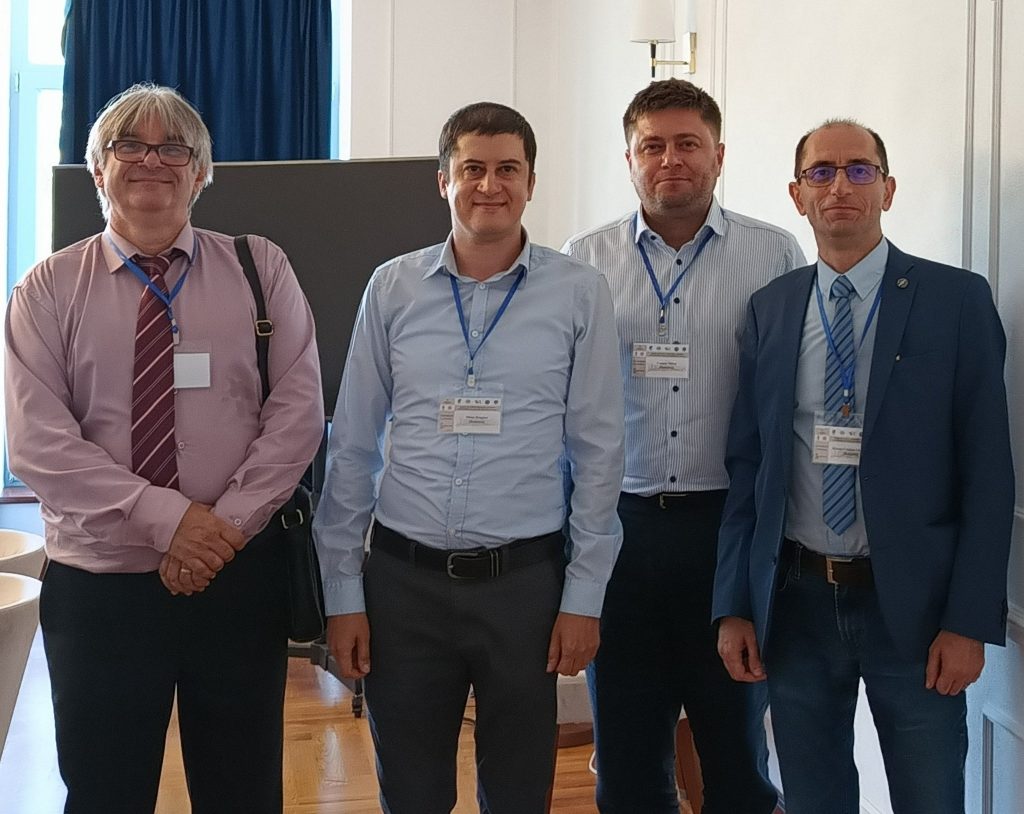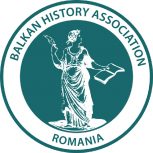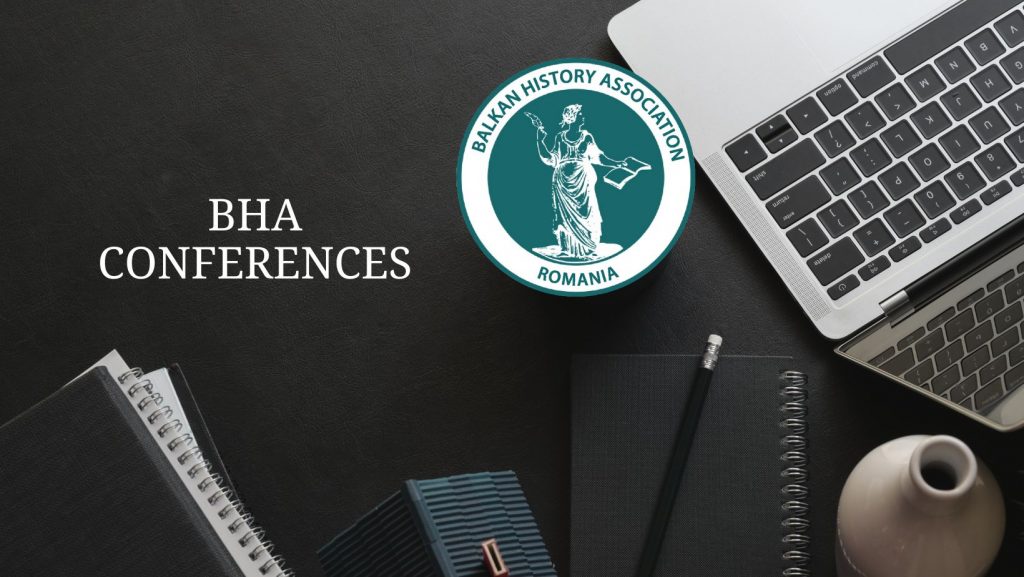

The international conference “Identity and Territory: Regionalism, Nationalism and Modernity in Central and South-Eastern Europe” aims to provide a platform for dialogue regarding the identity genealogy and geography of the Central and Southeastern Europe, focusing on concepts and terms such as parochialism, localism, and fragmented identities in the context of nation-state building in the 19th and 20th centuries.
The conference is organized by the Center for the History of International Relations (CIRI), within the Faculty of History, the Society for Historical Studies in Romania, the Laboratory for Historical and Prosopographic Research on the Romanian Elite, within the Department of Social Sciences and Humanities from Alexandru Ioan Cuza University of Iaşi, and the Balkan History Association.
Partner: Iaşi City Hall
Organizing Committee
PhD. Professor Cristian Ploscaru – Faculty of History, “Alexandru Ioan Cuza” University of Iaşi
PhD. Lecturer Cosmin Mihuț – Faculty of History, “Alexandru Ioan Cuza” University of Iaşi
PhD. Associate Researcher Mihai Dragnea – Department of Business, History and Social Sciences, University of South-Eastern Norway; President of the Balkan History Association
PhD. Senior Researcher Mihai-Bogdan Atanasiu – Institute of Interdisciplinary Research, Department of Social Sciences and Humanities, “Alexandru Ioan Cuza” University of Iaşi
PhD. Associate Professor Mircea-Cristian Ghenghea – Faculty of History, “Alexandru Ioan Cuza” University of Iaşi
Conference Programme
Wednesday, September, 10th
(Vespasian Pella Room, “Alexandru Ioan Cuza” University)
Chair: Cristian Ploscaru
9.30-10.15: Conference Opening and Welcome Speeches
Mihai Chirică, Mayor of the City of Iaşi
Liviu-George Maha, Rector of “Alexandru Ioan Cuza” University of Iaşi
Lucrețiu Mihailescu-Bîrliba, Dean of the Faculty of History, “Alexandru Ioan Cuza” University, Iași
Cristian Ploscaru, Center for the History of International Relations (CIRI), Iaşi
First Session
(Vespasian Pella Room, “Alexandru Ioan Cuza” University)
Identity and Territory in Nation-State Building
Chair: Cosmin Mihuț
10.15-11.00: Keynote Speaker
Xosé M. Núñez Seixas (University of Santiago de Compostela), Political and cultural renaissances in Mediterranean Europe (1860-1945): A comparative approach
11.00-11.30: Coffee Break
11.30-13.00: Plenary Session
Anna Pigoń (University of Wrocław), Miloš Řezník (Chemnitz University), Peripheral Regions as the Nation’s Treasury
Katalin Schrek (University of Debrecen), Imperialism, Modernity and National Identity: The Challenges and Alternatives of Infrastructure Developments in the Balkans (1860-1890)
Ion Cârjă (Babeș-Bolyai University), Une histoire contrefactuelle. D. D. Pătrășcanu et la participation de la Roumanie à la Première Guerre Mondiale
13.00-14.30: Lunch – Restaurant “Casa Universitarilor”
Second Session
(Vespasian Pella Room, “Alexandru Ioan Cuza” University)
Urban Culture and Community Identity in Change
Chair: Jeremy DeWaal
15.00-17.30: Plenary Session
Agata Łysakowska-Trzoss (Tadeusz Manteuffel Institute of History), Between Local and National Needs: The Activity of Charitable Organizations in Nineteenth Century Greater Poland as a Sphere of Polish Engagement under Prussian Rule
Cristian Ploscaru (Alexandru Ioan Cuza University), Parochialism, local power and identity: Iasi and Chişinău in the mid-19th century
Lida-Maria Dodou (University of Vienna), Local Allegiance and National Indifference of Salonikan Jews, 1880-1938
Mircea-Cristian Ghenghea (Alexandru Ioan Cuza University), The 1862 ASTRA Exhibition in Brașov – Regional Consciousness and National Identity
Anastasia Romanova (Academy of Economic Studies of Moldova), Dynamics in Urban Place Names as Means of Identity Shift (Chişinău, Republic of Moldova)
17.30-18.00: Coffee Break
Third Session
(Vespasian Pella Room, “Alexandru Ioan Cuza” University)
Reshaping Identity: Ideology and Conflict
Chair: Mircea-Cristian Ghenghea
18.00-19.00: Plenary Session
Blagoj Conev (University of Skopje), The Nationalism as a Factor for the Dissolution of Yugoslavia: How Western Understanding of the Nation-State Produced the Yugoslav Wars
Gabriel Leanca (Alexandru Ioan Cuza University), (Romanian) Populism: Critique of a Persistent Concept
19.00-20.30: Dinner – Restaurant “Casa Universitarilor”
Thursday, September, 11th
Fourth Session
(Vespasian Pella Room, “Alexandru Ioan Cuza” University)
Representations of Space in National Context
Chair: Xosé M. Núñez Seixas
09.15-10.00: Keynote Speaker
Jeremy DeWaal (University of Exeter), Beyond Nationalist Regional Frames: Narratives of West German Border Regionalisms as Pro-European Forces, 1945-1990
10.00-11.30: Plenary Session
Cosmin Mihuț (Alexandru Ioan Cuza University), The Project of a Romanian-Serbian Confederation on the Lower Danube (1838-1840): Imperialism, Provincialism, and National Identity
Kešetović Meldin (University of Sarajevo), Localism and Fragmented Identities in the Peripheral Regions of Bosnia and Herzegovina (1878–1941): Between Ottoman Legacy and Yugoslav Nation-State Building
Lucian Turcu (Babeș-Bolyai University), Territorial Union Without Religious Unity? Debates and Projects Around the Confessional Union of Romanians in the Interwar Period
11.30-11.45: Coffee Break
Fourth Session
Young Researchers Workshop
Chair: Miloš Řezník
11.45-13.15: Plenary Session
Mădălin Anghel (Alexandru Ioan Cuza University), Local or National Uprising: the events in Moldavia in the spring of 1848 described by the consuls of the Great Powers
Bogdan Ștefan Barcan (Alexandru Ioan Cuza University), The Albanian Community in Romania and the Paris Peace Conference (1919–1920)
Andrei Popa (The Institute of the Romanian Revolution of December 1989), An ‘Inherited History’: The Nationalistic Discourse of the Ceaușescu Regime
13.15-13.45: Final discussions, Conclusions
14.00-15.30: Lunch – Restaurant “Casa Universitarilor”
17.00-19.00: Guided Tour of Iași
19.00-20.30: Dinner – Restaurant “Casa Universitarilor”

